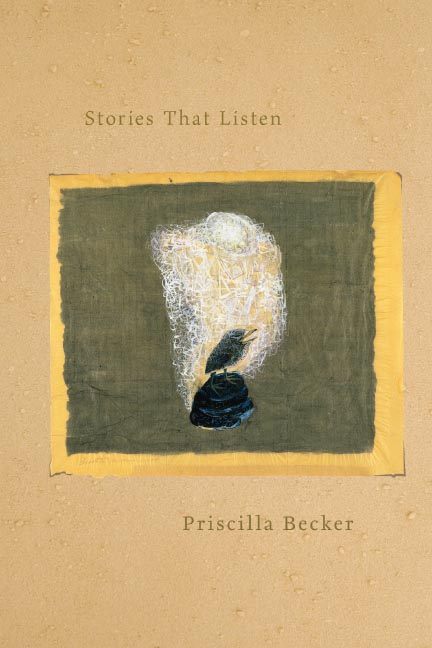
paper • 72 pages • 15.95
ISBN-13: 978-1-935536-05-5
Stories That Listen practices a careful empiricism, offering a science of the human, a way to understand the world through watching and listening: “The sound as when your foot / breaks through the snow, / that sound was in the house.” Becker’s poems are as much in the Eastern European tradition of Eugene Jebeleanu or Daniel Simko as the American tradition of George Oppen. They emerge from a desire to find “the right way / to describe the want / to stand by,” they side with apartness, “the first fragment of division, / the private room.” Out of apartness comes a way of being in the world through observation, and observation leads equally to philosophical certainty (“It is a mistake to call logic / cold; it has no temperature at all”) as to the odd, almost surreal faith by which “I left my toenails at the beach, hoping / they would grow another body. / I would return with a better, / more expressive face.” Quirky, at times outright funny, always wise, Stories That Listen is a resonant, rewarding read. These are stories that listen—and to which we would all do well to listen.
White Tone
I think I prefer now being unloved
and listening for my footsteps in the dark.
There was a tree in the yard —
not any more —
whose crooked branch I’d watch.
I held a ceremony in which I married
my black dog.
There is a certain smell
that overtakes me, for instance
once, in a button shop.
And then I came to disregard.
Also a kind of nakedness
that has to do with words.
I made a list
of things I’d like. I tied
a string. The sound as when your foot
breaks through the snow,
that sound was in the house.
There is no argument for yourself.’ This is one of the last lines of this impressive book. Priscilla Becker presents a mixture of feeling and thought, or rather the interaction between them. The internal world is continuously confronted with external reality. This poetry makes you both feel and think intensively.
There’s a distinct meditation in Priscilla Becker’s poetry. As if she’s stripping away the confounding effluvia of emotion to reveal its essence in sad yet smiling lines. It’s all very personal yet, like music with its beguiling sensuality, a shared experience of love, both intimate and distant.
Becker’s second book is even better than her first, which legitimately deserved the praise which hailed it. Her voice bleeds and breathes with a paradoxically innocent wisdom, a freshness of perception unique as air. They open the page: they close the book. Becker is the best.